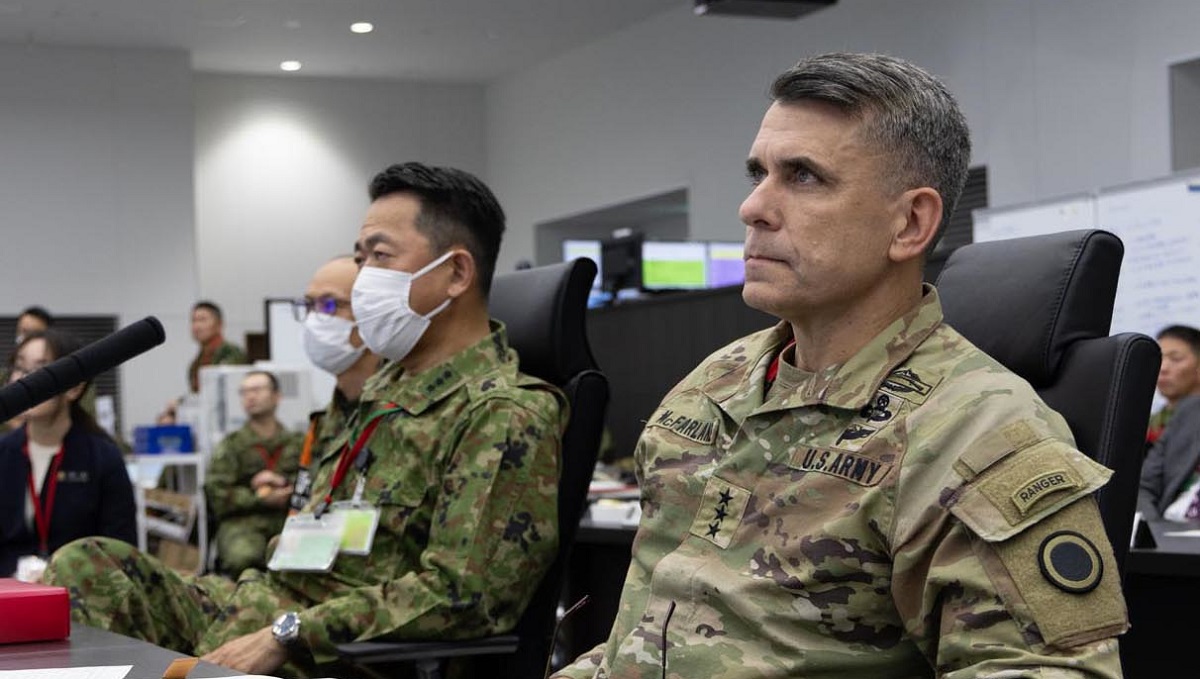
The successful adoption of new technology in the military depends on the organization’s culture, the technology’s applicability and ease of incorporation into existing systems and processes, and, perhaps most importantly, the leadership guiding the transformation.
Dan Gregorio and Andy Knight join host Tom Spahr to discuss the I Corps’s adoption of the Maven Smart System to enhance mission command. Gregorio and Knight discuss the practical technical and leadership actions necessary to introduce a major new capability to the headquarters in just six weeks. Maven Smart System provides a unified interface for data sharing and enables commanders to visualize, act, and direct operations in real-time. Overall, the case is a good example of transformation in contact to significantly enhance lethality.
We’re able to cut that staff processing time in half. That lets us pay our staff officers and our army professionals to think rather than to process the data.
Podcast: Download
Dan Gregorio is a Space Operations Officer and a lieutenant colonel in the U.S. Army sprinting through his 20th year of commissioned service. He has combat deployments to Iraq and Afghanistan. Dan has a Master of Science in Space Operations and Optimal Control Theory from the Naval Postgraduate School and joined I Corps in 2023 after an 7 year stint in the USEUCOM AOR.
Andy Knight is a career field artillery officer and a colonel in the U.S. Army closing in on 26 years as a commissioned officer. He deployed once to Iraq, twice to Afghanistan, and served OCONUS in Alaska, Germany, and the Republic of Korea. Andy is an Army War College grad and came into brigade command in 2023 after two years in the Joint Staff J-35 at the Pentagon.
Thomas W. Spahr is the DeSerio Chair of Strategic and Theater Intelligence at the U.S. Army War College. He is a retired colonel in the U.S. Army and holds a Ph.D. in History from The Ohio State University. He teaches courses at the Army War College on Military Campaigning and Intelligence.
The views expressed in this presentation are those of the speakers and do not necessarily reflect those of the U.S. Army War College, U.S. Army, or Department of Defense.
Photo Description: U.S. Army Lt. Gen. Matthew W. McFarlane, I Corps commanding general, and Japanese Lt. Gen. Toshikazu Yamane, Ground Component Command commanding general, receives a briefing as part of Yama Sakura 87 and Warfighter 25-2 at Camp Asaka, Japan, Dec. 7, 2024. For the first time in its 40 years history, YS87 will run simultaneously with the U.S. Army’s Warfighter exercise, creating an unprecedented opportunity to validate joint operational capabilities across the Pacific theater.
Photo Credit: U.S. Army photo by Sgt. Griffin Payne





Given AI, and the definition of “lethality” described below, could — and indeed should — such things as the Maven Smart System be adapted, and/or utilized; this, to effectively attack, damage, neutralize or destroy an opponent’s threatening political ideology, such as “civilizationalism?”
Lethality: In a military context, lethality refers to the capability of a weapon or capability (such as the Maven Smart System?) to effectively neutralize or destroy an enemy target (such as an opponent’s threatening political ideology?).
In this regard, do not our opponents today, such as China, Russia, Iran, etc., use such thing as AI; this, to achieve lethality, in this case, as relates to THEIR enemy target, which would appear to be, for example, “the liberal international order?”
In looking back now at my comment immediately above, I must admit that I, too — much like author Anna Harvey in her more recent thread “Understanding Russian Hybrid Warfare: Elections in Moldova and Georgia” — would appear to be behind the times/would seem to be on the wrong sheet of music now; this, given my suggestion (see my comments at Anna Harvey’s article referenced immediately above) that — from an ideological point of view —
a. The United States would no longer seem to see itself as being engaged in strategic competition with such diverse entities as Russia, China, Iran, N. Korea and the Islamists now, and would, instead,
b. Seem to see itself (much like Russia, China, N. Korea, Iran and the Islamists?) being engaged in a strategic competition with liberalism, the defenders of the liberal international order (such as the EU?) and these defenders efforts to maintain and expand same instead.
From that such perspective, should we not admit that, if we were to adapt such AI things as the Maven Smart System — these, to effectively attack, damage, neutralize or destroy Russia’s, China’s, N. Koreas, Iran’s and/or the Islamists “civilizationism” political ideology — then, essentially, we would have shot ourselves in our own foot/would have effectively moved out smartly to attack, neutralize, damage and/or destroyed the ideology that we seem to have adopted for ourselves of late; this, to replace such things as liberalism?